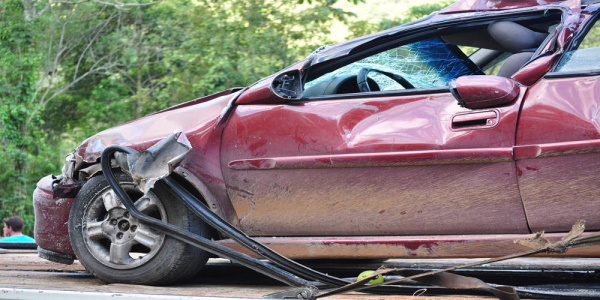Car accidents can cause devastating injuries and may compel the victims to file personal injury lawsuits against the responsible parties. Traffic collisions affect everything from lost wages to increased debt due to medical bills, but compensation from a lawsuit settlement may help with those monetary damages.
But what do car accident settlements in Georgia involve? What amount is your case worth?
The following information will address those questions and more regarding car accident settlements in Georgia.
The Basics of Car Accident Settlements in Georgia
The value of your Georgia car accident case depends on the severity of your injury. The total of your medical bills and your available insurance will also affect your settlement compensation amount. But do not let insurance companies assign a settlement formula to your case as it may be worth much more.
Georgia does not have a unique blueprint to follow when it comes to calculating car accident settlements. Once victims know their total amount for their past and future medical bills, increased debt, and lost wages, a victim or their injury lawyer will send a demand letter to the right insurance company, thereby settling most car accident cases.
Car Accident Settlement Factors
The value of car accident settlements in Georgia changes from case to case. Insurance companies and lawyers will examine certain factors to evaluate a case and rely on similar prior case results. They will look at how the accident affected you and whether your injuries may cause permanent problems.
But in Georgia, nine factors play a role in determining the value of car accident settlements.
1. The Amount of Available Insurance.
In Georgia, drivers must have a liability insurance policy with a minimum of $25,000.00. Some drivers pay for coverage more than the state minimum, and commercial drivers usually have an insurance policy between the minimum of $500,000 to several million dollars.
If you have severe injuries and the driver only has the minimum liability insurance of $25,000.00, your car accident settlement’s value will total the liability policy limit. However, if you have minor injuries, their minimum coverage may be enough to settle the case within the policy limit.
If the responsible driver fails to have enough insurance to cover your injuries fully, you may have an entitlement to your own under-insured or uninsured motorist coverage policies.
2. The Accident’s Severity.
An accident’s severity is sometimes clearly evident, but when the vehicle involved only has light or moderate damage, insurance companies assume you did not sustain serious injuries, thereby prompting them to make a smaller offer. As a result, you may want your lawyer to obtain expert testimony.
3. The Timeline in Which You Received Medical Treatment After the Accident.
After an accident, ensure you seek medical treatment as soon as possible or call 911 if you experience significant pain, visible injuries, lightheadedness, or breathing trouble. The longer you wait to receive treatment, the more the insurance companies will claim you did not sustain significant injuries in the accident. So, it is crucial to seek medical treatment to rule out any severe hidden injury and prevent the responsible party’s insurance company from using the gap in initial medical care and treatment as a defense against you.
4. The Severity and Permanency of Your Car Accident-Causing Injuries.
Less severe injuries will receive less in a settlement than severe or permanent injuries. If the injury is the loss of a limb or vision, it is typical for payments to range between six and seven-figure amounts. Medical experts will testify about the severity of the injury, the reason the injury is permanent, and how it will affect the victim’s quality of life and earnings.
However, suppose the injury is less severe (a soft tissue injury), and you make a full recovery with no permanent impairment. In that case, your case will settle for a smaller amount to cover medical bills and lost income.
5. The Kind of Treatment You Received for Your Injuries.
Your injury will determine the treatment you receive. Chiropractic care or physical therapy for less severe injuries (soft tissue injuries) will result in smaller car accident settlements. However, if you get hospitalized or require injections or surgery due to your injuries, your case will have more value, and probably settle for more money.
If you are not recovering as quickly as you anticipated, continue to seek medical care and follow your medical doctor’s recommendations. Without ongoing medical treatment with reports showing your pain and suffering, the insurance companies will refuse to offer you a fair and reasonable amount.
6. The Length of Time You Received Treatment for Your Injuries.
Always follow your health care provider’s recommendations regarding treatment and care for your injuries. Do not continue to receive treatment after you recover to increase your medical bills.
If your condition requires ongoing medical treatment for the foreseeable future, it is part of your case’s settlement value. Georgia law states that you are entitled to compensation for the total amount of your past, present, and future pain and suffering. But suppose you cease to receive medical care before you have recovered or against your doctor’s recommendations. In that case, it can jeopardize your case or may result in the insurance company offering you a smaller amount.
7. The Amount of Your Car Accident-Related Medical Expenses.
Although it factors into your case, the total amount for medical expenses and lost wages is not always directly associated with your case’s settlement value. Sometimes, the more your current medical expenses, future medical expenses, and lost earnings, the greater your case’s value. But this is not always true.
8. Your Prior claims or Similar Past Injuries.
Your settlement may be significantly affected by similar injuries from the past, regardless of the cause. Your settlement value would be less if you did not suffer a new injury. However, if it exacerbated an existing injury, your case may have greater value.
9. Injury Proof and Credibility.
Injuries you cannot see are hard to prove, and therefore, are more unlikely to receive a considerable settlement value. While your vehicle does not require extensive damage to prove you sustained injuries, it jeopardizes your credibility if you claim an injury when the amount of damage to your car caused by the collision does not support it. An experienced and professional injury attorney will discuss your injury with your doctors to determine if the crash caused your injury.
Contact Us
Have you sustained injuries from a car accident recently? Do you think you might have a personal injury case? Contact the personal injury attorneys at the Law Office of John B. Jackson today for a free consultation.






